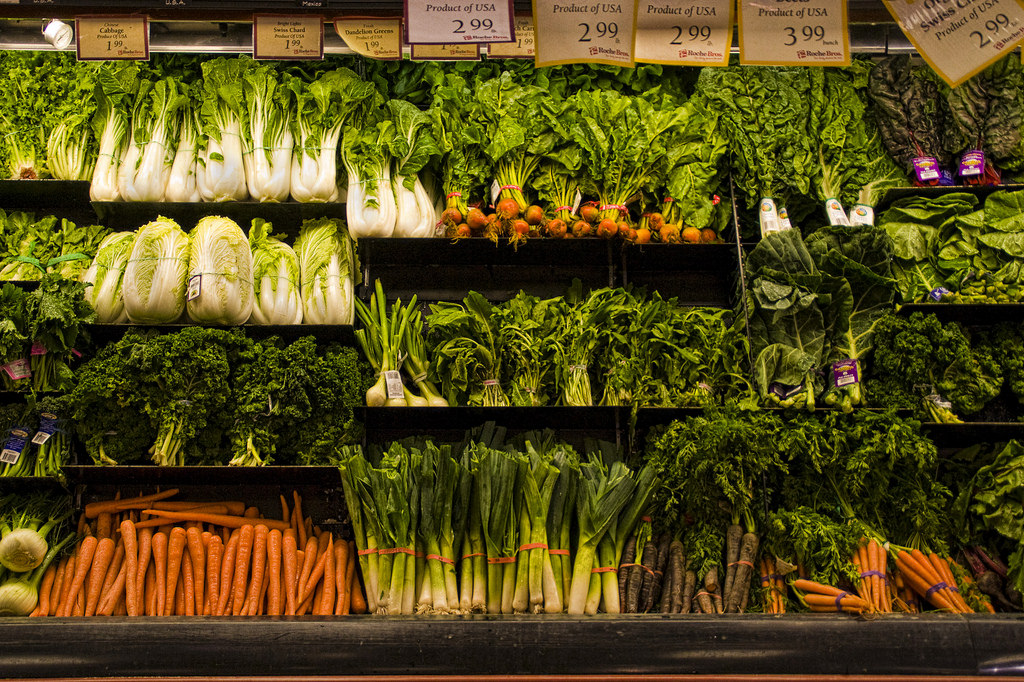
Although vegetarianism has been popularized for many years and has influenced most restaurants and stores to carry more meat-free options, its more extreme cousin, veganism, is a term not known by many people. But it is quickly becoming more mainstream.
A vegan is a person who does not eat anything that comes from an animal. Most people who follow a vegan diet also follow a vegan lifestyle, meaning that they will not purchase anything that comes from an animal, such as fur clothing or products tested on animals. In the end, each individual’s reasons for the way they eat differ greatly, from health, to animal rights and even sustainability.
Some might say, if you are already taking a stand against meat with your diet, why do you need to eliminate other animal products like milk and eggs?
Many argue that milk and eggs don’t contribute to the killing of animals, so they believe it is okay to continue consuming these products. What many people do not know is that the meat, egg and dairy industries are all connected.
Dairy cows suffer just as much, if not more, in factory farms than cows bred for meat. A cow must be pregnant in order to produce milk, just like humans. This means that a female cow must be artificially inseminated over and over again in order to continually produce milk.
After her baby is born, its fate depends on its gender. If it is a girl, it is taken from its mother, strapped to its own milk machine and forced to go through the same process as its mother. But if it is a boy, it is shipped to the slaughterhouse where it will be killed and then packaged and sold at the supermarket as veal.
This cycle continues until the mother cow is spent, usually after four inseminations, and can no longer produce milk. Her life ends at the slaughterhouse, too.
Unfortunately the connection between the meat industry and other edible animal products doesn’t end here. The egg industry is equally as appalling.
When baby chicks are born, the males and females are separated on a conveyor belt. The females lead a short, 2-year life as an egg producer and the males are either thrown away in a trash can or ground-up alive.
Egg-laying chickens are kept in tiny, cramped cages (usually containing five to 10 hens) with no room to move. Because of the dirty and diseased conditions many hens die in their cages, leaving workers to pick out the dead bodies.
As opposed to the 30 or so eggs a hen might lay naturally, the average factory-farmed hen lays an average of 275 eggs per year. Once the hen stops producing eggs, it is sent off to slaughter.
So you see, even if an animal is not being directly slaughtered while it produces milk or eggs, their life will ultimately end at the slaughterhouse anyway.
Some people avoid veganism because of the myth that milk is essential for strong bones due to its high calcium content. But studies have been done to link milk intake with high calcium and the results are startling.
In 2007, the countries with the highest dairy consumption were Finland, Sweden, the Netherlands and the United States. It just so happens that these countries are also those with the highest rates of osteoporosis. Dairy could also be linked to an increase certain types of cancer, such as prostate, breast and ovarian.
There are many plant-based options for receiving the same nutrients you get with meat and dairy, without the excess hormones and disease (not to mention the blood and pus from milking a cow). Unlike animal products, plants have been shown to decrease disease, increase longevity and increase energy. You may not think about it, but most plants contain calcium. If you are looking to incorporate more calcium-rich foods in your diet, keep an eye out for almonds (and any other nut milk), kale, broccoli, soy and collard greens.
Eating consciously and thoughtfully is one of the most important things that you can do to improve the world you live in. The next time you sit down for dinner or take a trip to the grocery store, keep in mind the lives that were spared and the risks at “steak.”


